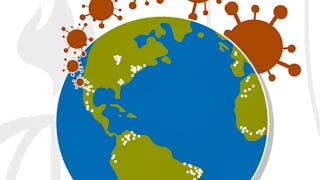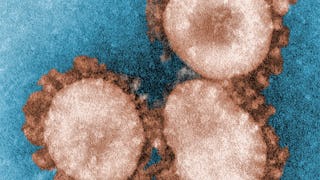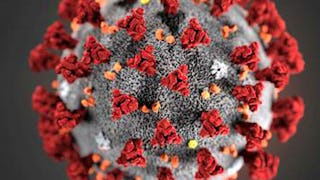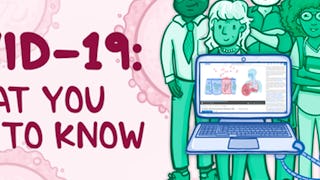Do you want to learn how to detect, identify the cause, and decrease the morbidity and mortality from outbreaks or pandemics like COVID-19? Are you considering a career in public health practice, but aren’t sure how health departments collect and use outbreak data?

Investigating Epidemics like COVID-19: An Analyst's Guide


Investigating Epidemics like COVID-19: An Analyst's Guide


Instructors: Melissa A. Marx, PhD, MPH
Access provided by Universiti Brunei Darussalam
Gain insight into a topic and learn the fundamentals.
Intermediate level
Recommended experience
1 week to complete
at 10 hours a week
Flexible schedule
Learn at your own pace
What you'll learn
Conduct an outbreak investigation
Create epidemic curves and draw conclusions about the cause of an outbreak from the shape of the curve and median incubation period
Identify disparities and quantify associations between exposures and health outcomes and use findings to inform the public health response
Skills you'll gain
Details to know

Shareable certificate
Add to your LinkedIn profile
Assessments
9 assignments
Taught in English
See how employees at top companies are mastering in-demand skills

There are 4 modules in this course
What's included
1 assignment3 plugins
What's included
1 assignment3 plugins
What's included
8 videos4 readings5 assignments3 ungraded labs4 plugins
What's included
2 videos2 readings2 assignments1 ungraded lab1 plugin
Offered by
Why people choose Coursera for their career

Felipe M.
Learner since 2018
"To be able to take courses at my own pace and rhythm has been an amazing experience. I can learn whenever it fits my schedule and mood."

Jennifer J.
Learner since 2020
"I directly applied the concepts and skills I learned from my courses to an exciting new project at work."

Larry W.
Learner since 2021
"When I need courses on topics that my university doesn't offer, Coursera is one of the best places to go."

Chaitanya A.
"Learning isn't just about being better at your job: it's so much more than that. Coursera allows me to learn without limits."
Explore more from Health

Johns Hopkins University

American Museum of Natural History

Imperial College London


